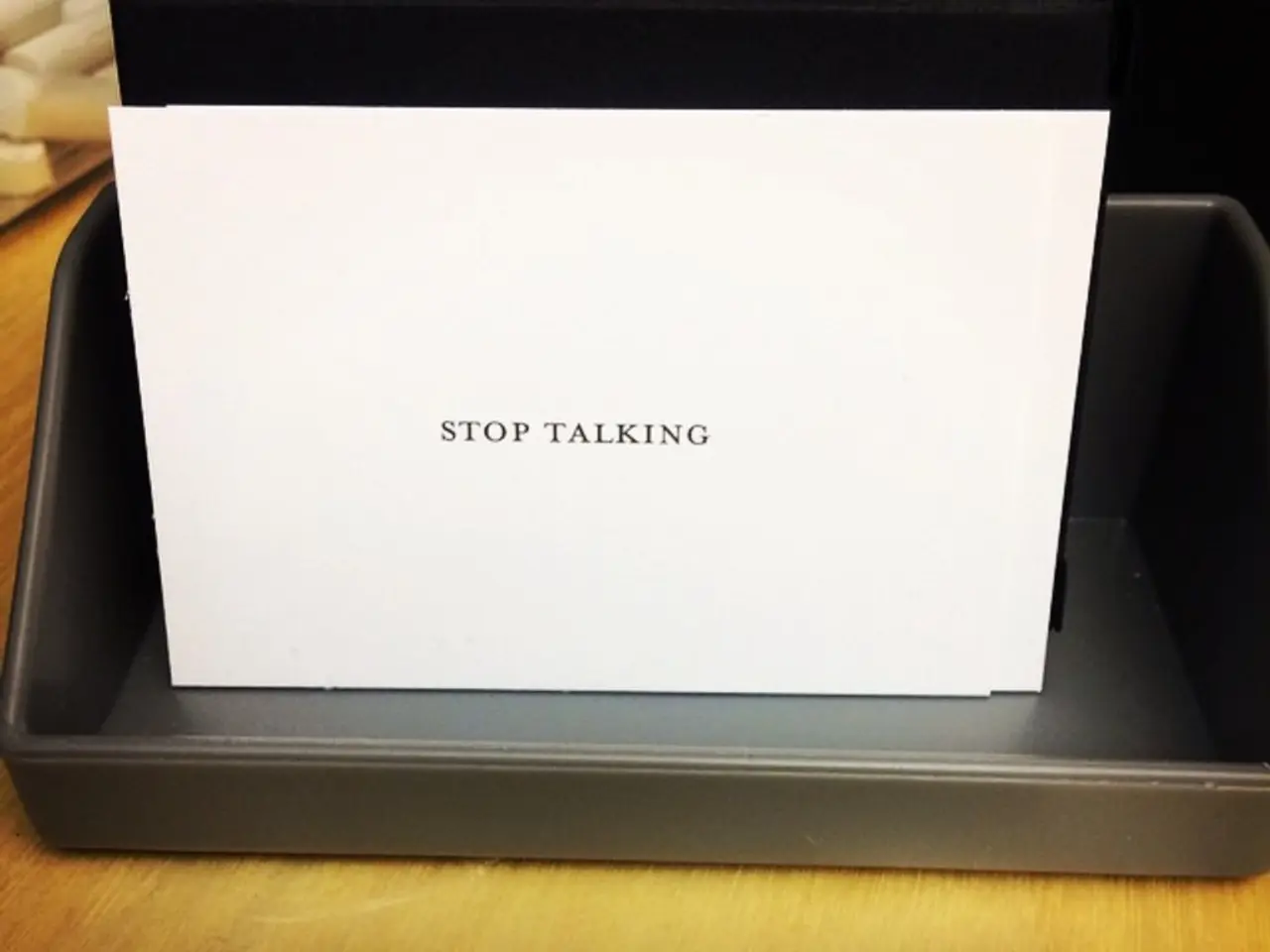Online Detachment Becomes Elite: Embracing the Serenity of Digital Disconnection
In today's world, where constant connectivity is the norm, digital disconnection has emerged as a sought-after status symbol. This shift represents a deliberate resistance to the addictive and overwhelming aspects of hyper-connectivity, embodying values of self-care, presence, and meaningful engagement that stand out in an era defined by incessant digital noise and visibility.
Intentional Choice Against Digital Overload
Digital detoxing or disconnection involves deliberately scheduling offline periods to resist habitual scrolling, social media pressure, and "doomscrolling," which many find addictive due to algorithm-driven attention capture. This choice demonstrates self-discipline and prioritization of well-being, conferring social status to those who can afford to unplug.
Connection to Natural and Social Presence
Disconnecting digitally often involves engaging in activities like nature walks or meaningful in-person interactions, emphasizing being present in the moment and with others rather than absorbed in screens. This mindful approach contrasts with the distraction endemic to constant connectivity.
Symbol of Control and Alternative Values
In a culture where constant availability is expected, those who manage to step away from their devices highlight control over technology rather than its servant. Such digital disconnection can be seen as adopting an alternative lifestyle or value system that prizes slow experiences, deeper human connection, and mental clarity.
Social and Political Dimensions
While disconnection can be a status symbol for some, it contrasts sharply with digital exclusion due to lack of access, which leads to social invisibility and political marginalization. Thus, voluntary disconnection has an element of privilege because it presumes digital access in the first place.
The Appeal of Being Invisible
The appeal of being offline will likely grow as society wrestles with screen fatigue and algorithmic overstimulation. The relentless connectivity in today's world has made silence a status symbol. Being offline is now a deliberate choice that signals autonomy, security, and rare access to something increasingly scarce: peace.
The Shift Towards Digital Quiet
The shift towards digital quiet is particularly visible among those who can afford to step back, such as celebrities, tech leaders, and ultra-wealthy travelers. They are opting for seclusion and discretion in exclusive experiences like private islands, boutique hideaways, and invitation-only clubs. Fewer updates from people once followed religiously may be expected.
Silence as a Luxury
In the new digital culture hierarchy, silence has become the most expensive sound. Intentional silence, such as not posting every meal or leaving messages unread, is a luxury of time, money, and power. The freedom to disconnect is not equally distributed, with most people requiring online presence for work, school, social life, or survival.
The 21st Century's Concept of Luxury
The 21st century's concept of luxury often emphasizes absence, such as the absence of notifications, public profiles, or algorithm-driven exposure. To be unavailable, unreachable, or unplugged is no longer a sign of being left behind, but a statement of power, privacy, and control.
In conclusion, digital disconnection as a status symbol reflects a deliberate resistance to the addictive and overwhelming aspects of hyper-connectivity. This status is enabled by digital privilege and is celebrated through practices such as digital detoxing and slow travel experiences that embrace disconnection as enriching rather than isolating.
[1] Smith, A. (2021). The Rise of Digital Detox Retreats. The New York Times. [2] Johnson, K. (2020). The Allure of Disconnecting in a Connected World. The Atlantic. [3] Singer, N. (2018). Ghost in the Wires: My Adventures as the World's Most Wanted Hacker. Penguin Books. [4] Van Dijck, J. (2014). The Culture of Connectivity: A Critical History of Social Media. Oxford University Press. [5] Cain, S. (2012). Quiet: The Power of Introverts in a World That Can't Stop Talking. Crown Publishing Group.
- In the new digital age, opting for digital disconnection can symbolize self-discipline, prioritizing health and well-being, as individuals intentionally schedule offline periods to resist the addictive nature of social media.
- Disconnecting digitally often means engaging in activities such as nature walks, meaningful in-person interactions, or slow travel experiences, which emphasize being present and fostering deeper human connections.
- The luxury of digital silence, signified by the rarity of online updates, is increasingly sought after as a means of achieving autonomy, security, and mental clarity amidst the constant barrage of digital noise and visibility.




